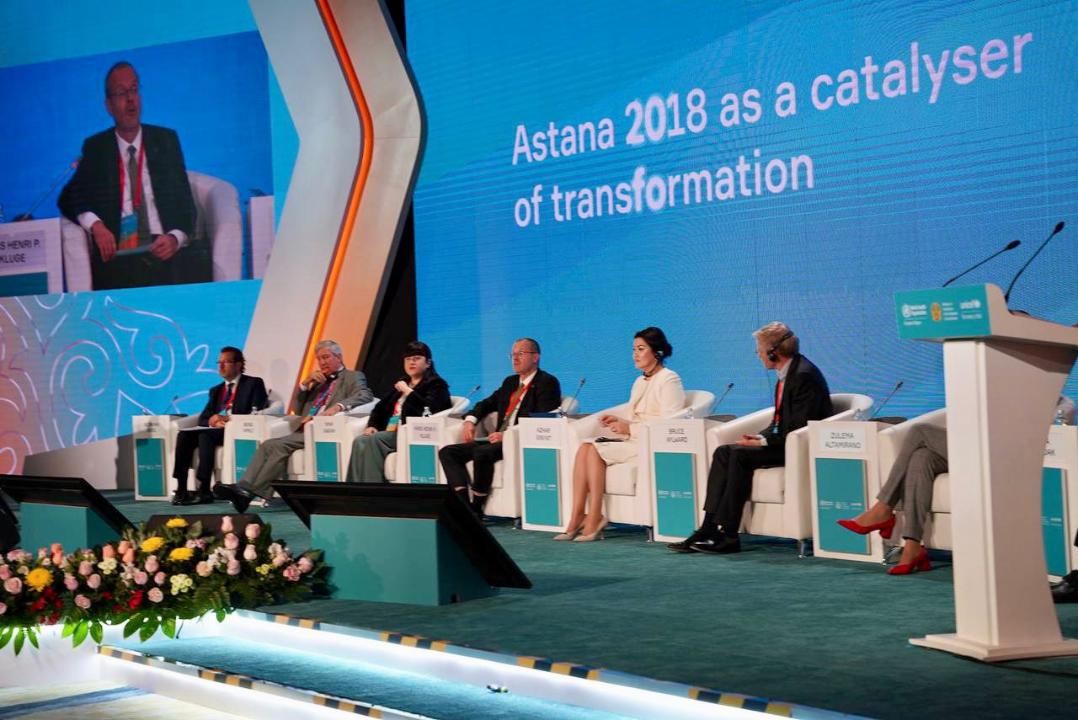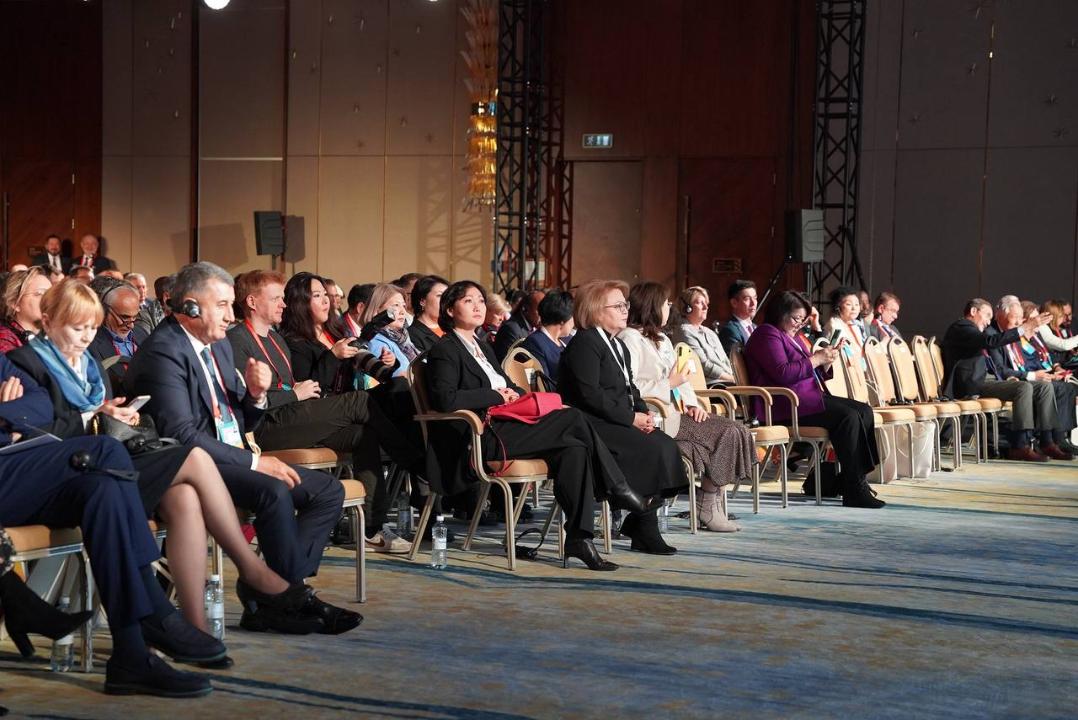ASTANA – The inaugural high-level panel session of the global conference on primary health care policy and practice convened in Astana on Oct. 23. It underscored the international shift from mere conceptual discussions to actionable strategies, aiming for a forward-thinking transformation in primary health care. This would ensure enhanced adaptability during crises and promote overall well-being.

The first high-level plenary session. Photo credit: Kazakh Healthcare Ministry.
The discussions, which were moderated by Gabriele Fontana, United Nations Children’s Fund (UNICEF) Regional Health Advisor, and Melitta Jakab, the head of the World Health Organization (WHO) Regional Office for Europe, took stock of progress made in the implementation of commitments agreed in 2018, when the Astana Declaration on Primary Health Care was signed.
The primary health care approach, reflected in the declaration, is foundational to achieving global goals in Universal Health Coverage (UHC) and the health-related sustainable development goals (SDGs).
In her welcoming remarks, Kazakh Healthcare Minister Azhar Giniyat underlined that “medical, social, and psychological assistance are integrated in primary health care in Kazakhstan, and the country adheres to the policy of preserving and strengthening people’s health and improving the provision of medical services.”
Giniyat noted the significant support provided by the state in strengthening primary health care and stressed the importance of increasing financing in this area.

Photo credit: Kazakh Healthcare Ministry.
“All strategic documents related to health care are promoted by the country’s leadership. To facilitate access to primary health care for every Kazakh citizen, we have to improve infrastructure, attract investments, and diversify and enhance medical services,” she said.
The minister underscored the significance of elevating professional standards, noting, “It is also important to train medical workers, provide them with appropriate conditions and medical equipment.”
Calling for action, WHO Regional Director for Europe Hans Kluge said “there are no shortcuts in transformation, as it requires a lot of achievements and a global high-level commitment.”
Another crucial measure, he emphasized, is the removal of barriers and the encouragement of professional growth.
“Sometimes it is inertia. I always say that it is not my job to motivate people. If you work with my team, I expect you to be motivated. However, what is important is that we shouldn’t demotivate people who achieve success. We need to identify these champions and enthusiasts to incentivize them to do the right thing.”
He mentioned the example of the flywheel effect, stating that “once you reach the right speed, you can no longer stop.”
Silvia Calzon, State Secretary for Health in Spain; Zulema Altamirano, head of the international relations department at the Spanish Ministry of Health; Tamar Gabunia, First Deputy Minister of Health in Georgia; and Sura Wisedec, Director-General of the Thai Ministry of Health — all of whom were invited to Astana to discuss their respective countries’ experiences — concurred on the importance of tailoring the primary health care system to meet the evolving needs of the populace, while leveraging innovations and digital technologies.
Additionally, Bruce Aylward, Assistant Director-General at the WHO Universal Health Coverage Division; Octavian Bivol, Deputy Regional Director of UNICEF in Europe and Central Asia (ECARO); and Bernd Appelt, a senior officer in the department of international assistance at the European Commission, imparted their specialized perspectives on global health care evolution.
